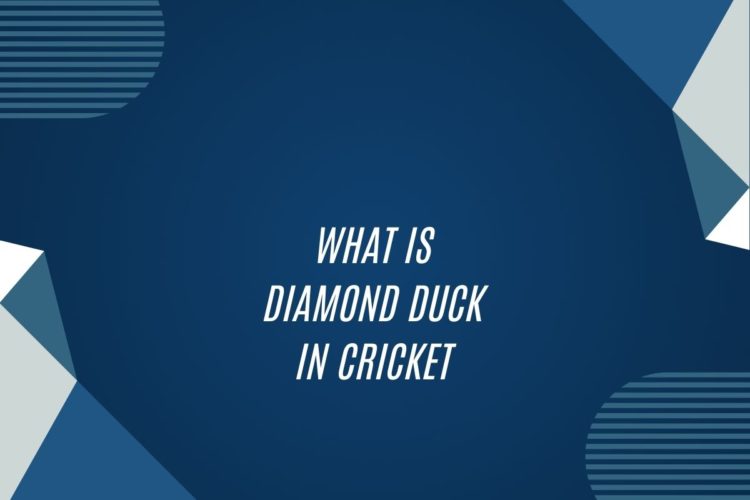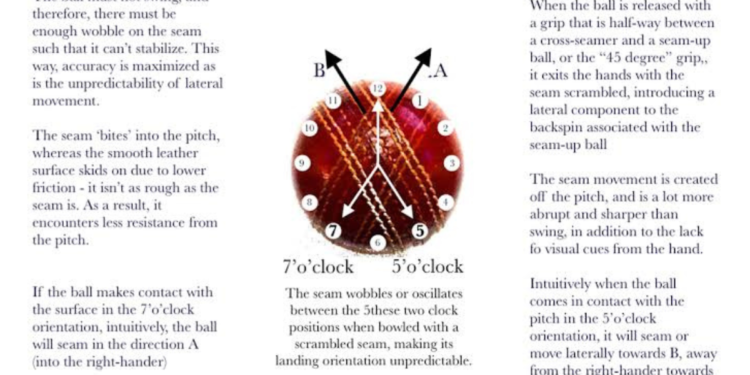Definition of Diamond Duck
A rare and unfortunate occurrence in cricket, a diamond duck refers to a dismissal of a batsman without facing a single delivery in an innings. This means that the player is out without contributing any runs to their team’s total. The term “diamond duck” is used to emphasize the precious and valuable nature of a diamond, highlighting the rarity and significance of being dismissed in such a manner.
When a batsman is given out without facing a ball, it is often met with disappointment and frustration, both for the player themselves and their team. A diamond duck dismissal can occur through various ways, such as being run out before the non-striker has faced a delivery, getting stumped or caught off a wide ball, or being run out due to a fielding error without facing a ball. Despite its rarity, a diamond duck remains a memorable and significant event in a cricket match, symbolizing an unfortunate and swift end to a player’s innings before they even had the chance to get off the mark.
Origin of the Term
Diamond duck, a term widely used in the sport of cricket, originated from the idea that a duck denotes a player’s dismissal without scoring any runs, akin to how a duck’s egg symbolizes a zero on the scoreboard. The addition of “diamond” to the term signifies a dismissal on the very first ball faced by a batsman, adding a further layer of rarity and uniqueness to the dismissal.
The term “diamond duck” is believed to have come into existence due to the precious nature of a diamond, implying the rarity and special significance of a dismissal on the very first ball faced. It adds a sense of intrigue and fascination to the sport, showcasing the unpredictability and sudden turn of events that can occur in the game of cricket with just one ball having the power to change the course of a player’s innings.
Difference Between Diamond Duck and Golden Duck
A “Diamond Duck” and a “Golden Duck” are terms used in cricket to describe different scenarios where a batsman is dismissed without scoring a run. While both terms refer to getting out on the first ball faced in an innings, they have distinct characteristics.
A “Diamond Duck” occurs when a batsman is dismissed without facing a ball, usually through a run-out or stumping before they have had the chance to take a run. In contrast, a “Golden Duck” happens when a batsman is out on the first ball they face during their innings, whether it be caught, bowled, leg before wicket (LBW), or any other mode of dismissal.
How Does a Player Get Out on a Diamond Duck?
A player is given a ‘diamond duck’ when they are dismissed without facing a single delivery in their innings. This rare occurrence typically happens when a batsman is run out on the very first ball they face, before they have had the chance to score any runs. The term ‘diamond duck’ signifies the preciousness of the wicket lost without contributing to the team’s score.
In the game of cricket, being dismissed in such a manner can be considered quite embarrassing for the player involved. It is a quick and unfortunate end to their time at the crease, leaving them with no opportunity to make an impact with the bat. A diamond duck dismissal is often met with disappointment by the player, their team, and fans alike.
Examples of Diamond Duck Dismissals
One notable example of a diamond duck dismissal occurred in a high-stakes match between two rival teams. The batsman, known for his aggressive batting style, was run out without facing a single ball due to a mix-up with his teammate at the opposite end. The crowd fell silent as the umpire raised his finger to signal the batsman’s premature exit from the game.
In another instance, a seasoned player with a reputation for big hitting found himself departing the crease on a diamond duck. He attempted to drive the first delivery he faced, only to edge it straight into the waiting hands of the slip fielder. The disappointment on his face was evident as he trudged back to the pavilion, his innings over before it had even begun.























